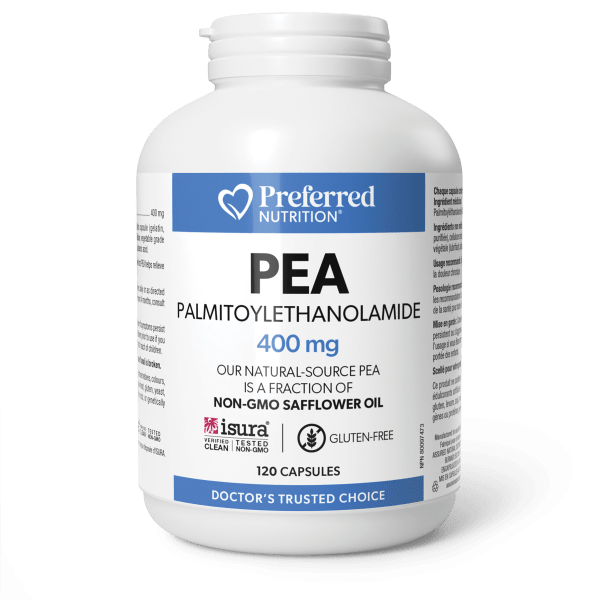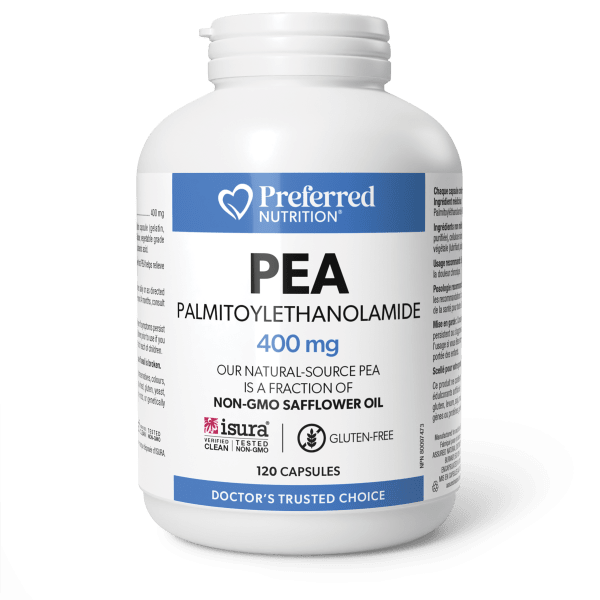Preferred Nutrition®
PEA 400 mg
PEA 400 mg
- Helps relieve chronic pain
- Features naturally produced PEA from fractionated non-GMO safflower seed oil
- Micronized for effective solubility and absorption by the body
- Provides 1200 mg of PEA per day, the same dose supported by clinical studies
SKU: PN0284
NPN: 80097472
Share

PEA 400 mg
Additional Information
Recommended Dosage
Recommended adult dose: 3 capsules daily or as directed by a health care practitioner. For use beyond 4 months, consult a health care practitioner
Allergy Information
This product does not contain artificial preservatives, colours, or sweeteners; no dairy, starch, sugar, wheat, gluten, yeast, soy, corn, egg, fish, shellfish, salt, tree nuts, or genetically modified genes or proteins.
Ingredients
| Each capsule contains: | |
| Medicinal ingredient: | |
| Palmitoylethanolamide (PEA) | 400 mg |
Gelatin capsule (gelatin, purified water), microcrystalline cellulose, vegetable grade magnesium stearate (lubricant), silica, stearic acid.
Cautions
Consult a health care practitioner if symptoms persist or worsen. Consult a health care practitioner prior to use if you are pregnant or breastfeeding. Keep out of reach of children.
References
Conigliaro, R., Drago, V., Foster, P.S., et al. (2011). Use of palmitoylethanolamide in the entrapment neuropathy of the median in the wrist. Minerva Med, 102(2), 141-7.
Gatti, A., Lazzari, M., Gianfelice, V., et al. (2012). Palmitoylethanolamide in the treatment of chronic pain caused by different etiopathogenesis. Pain Med, 13(9), 1121-30.
Keppel Hesselink, J.M., & Kopsky, D.J. (2015). Palmitoylethanolamide, a neutraceutical, in nerve compression syndromes: Efficacy and safety in sciatic pain and carpal tunnel syndrome. J Pain Res, 8, 729-34.
Lang-Illievich, K., Klivinyi, C., Lasser, C., et al. (2023). Palmitoylethanolamide in the treatment of chronic pain: A systematic review and meta-analysis of double-blind randomized controlled trials. Nutrients, 15(6), 1350.
Marini, I., Bartolucci, M.L., Bortolotti, F., et al. (2012). Palmitoylethanolamide versus a nonsteroidal anti-inflammatory drug in the treatment of temporomandibular joint inflammatory pain. J Orofac Pain, 26(2), 99-104.

